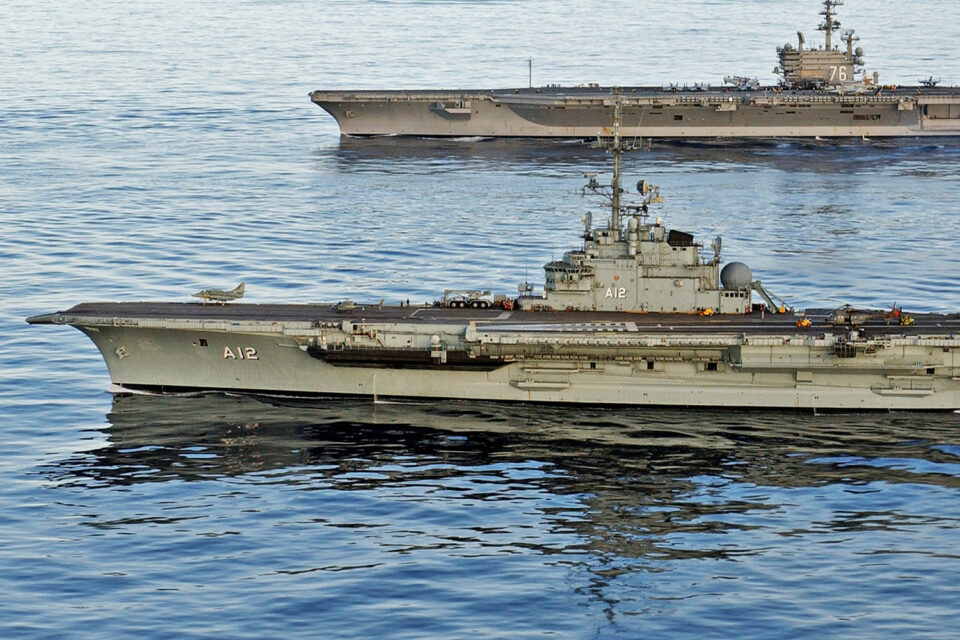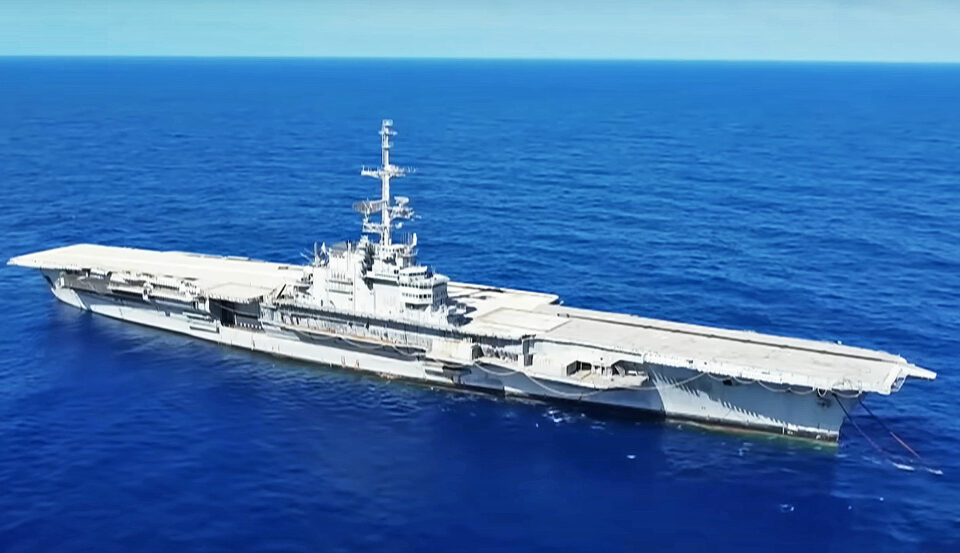The final destination of the former “São Paulo” aircraft carrier hull must be the bottom of the sea. The Brazilian Navy reportedly confirmed to outlets its intention to sink it on February 1, despite the environmental damage that could be caused.
The country’s Federal Public Prosecutor’s Office, however, called the courts to prevent the intentional sinking. The process is running at the 2nd Federal Court of Pernambuco, but it may be too late for any decision to take effect.
Follow ADN: Facebook | Twitter
The vessel was taken away from the coast on January 20 by a Brazilian Navy vessel after its owner, the Turkish shipyard Sök Denizcilik and Ticaret Limited, gave up on taking it to Turkey.
The ship returned to Brazil in October last year, after the Turkish government banned its entry into its waters, where it would be dismantled.

The alleged reason is the amount of asbestos and other toxic materials that are part of its structure. Until today, there is no understanding about the amount of heavy materials on the ship since the Navy and NGOs point to different numbers.
After three months of stalemate, Sök decided to relinquish ownership of the former São Paulo.
The company tried to obtain authorization to carry out repairs on the ship in order to try to receive it in Turkey, but several government bodies denied this possibility.

Violation of international environmental treaties
Since the end of last year, the Navy has given indications that the ship’s situation is getting worse, with degradation of buoyancy conditions. Therefore, intentional sinking, using explosives, would be the way to put an end to the ship.
Environmental organizations had already warned about the Navy’s intentions, but were unable to mobilize the federal government to stop the plans.
“Based on the evidence at hand, the Brazilian Navy should already be condemned for gross negligence. If they proceed with dumping the very toxic vessel into the wilderness of the Atlantic Ocean, they will violate the terms of three international environmental treaties and do so for no good reason,” said Jim Puckett, Director of the Basel Action Network.






